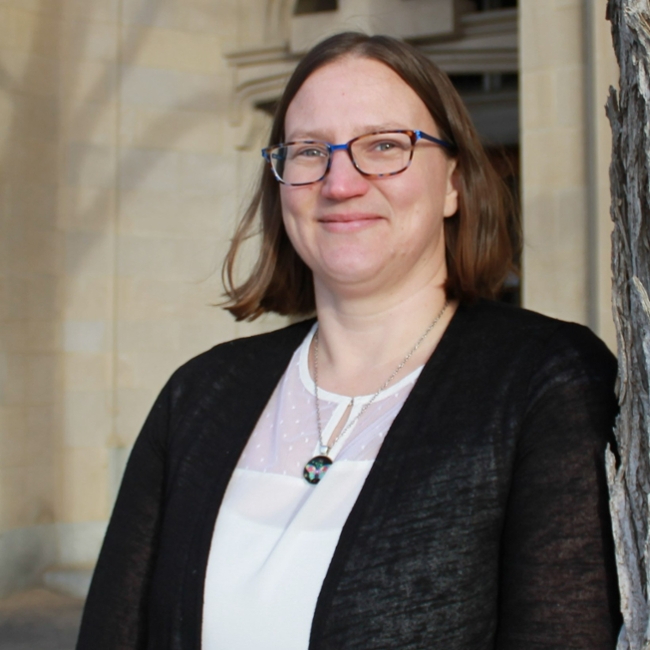
Canada Research Chair aims to create shift in engineering culture
Assistant professor Lori Bradford's goal is for future engineers to address social and cultural impacts equally with environmental and economic ones.
A USask Engineering researcher has been awarded funding through the federal government’s Canada Research Chair program to support new insights into Indigenization in engineering programs.
The Tier 2 Canada Research Chair program of Dr. Lori Bradford (PhD), an assistant professor from the Ron and Jane Graham School of Professional Development in the College of Engineering, and the School of Environment and Sustainability, will lead the creation of new knowledge to support both individual practices and a shift in engineering culture. The goal is for future engineers to address social and cultural impacts equally with environmental and economic ones.
“My CRC research program will inspire engineers to move from conventional multidisciplinary approaches to ones that embrace interdisciplinarity and Indigenization for design research and teaching,” said Bradford. “I will build consideration of mutualistic thinking—or thinking that blends viewpoints to benefit all knowledge users—from across disciplines into engineering colleges and practices.”
Bradford’s team will achieve the goals of the program by identifying barriers to and characterizations of inclusive engineering design, sharing successes of early adopters through longitudinal case studies plus new metrics and data, and creating evidence to drive inclusion of social and cultural sciences, fine arts, and Indigenous knowledge systems into engineering design.
“The goal extends beyond the classroom to wider knowledge sharing—through art and Awechigewin (an Anishinaabe word meaning to set things up for a desired outcome)—for solving engineering design problems,” said Bradford.
The impact will be graduate engineers with the tools and skills to approach design in more inclusive, decolonized ways.
Tier 2 Canada Research Chairs are awarded to excellent emerging researchers who have been recognized by their peers as having potential to lead in their field. The funding is used to support the operation of research programs. Awarded by a Tri-Agency initiative, the Tier 2 chairs will provide each recipient $120,000 annually for five years.
To bolster her CRC program, Bradford has also been awarded $175,000 in John R. Evans Leaders Fund (JELF) Partnership funding from the Canadian Foundation for Innovation for a novel mobile engineering design lab.
“The mobile engineering design lab (EDL), a first of its kind, will disrupt the geographies of conventional engineering – university campuses and urban offices,” said Bradford.
The EDL will be designed to travel to rugged, remote, and rural Indigenous and non-Indigenous communities, as well as medical offices, industry locations, sports fields, and more, going where solutions will be implemented. Activities will be geared toward specific stakeholder groups and demographics.
The towable enclosed trailer with a customized interior and expandable design will include everything needed to operationalize field research and invite engagement in deep science through computer-based simulations, physical prototyping, and artistic renderings of designs.
An earlier version of this story was published on July 21 on the USask News site.

